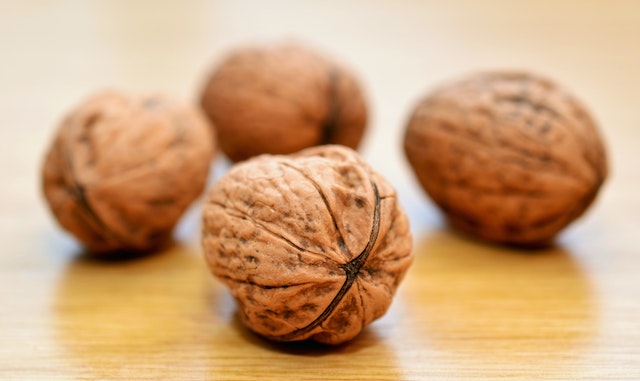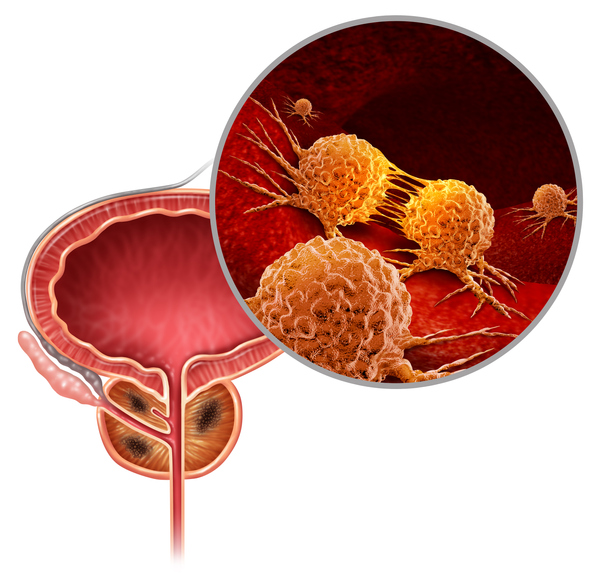Prostate Health: The Ultimate Guide: Prostate health and its importance: What is the prostate gland? Common issues related to prostate health: Signs and Symptoms of Prostate Problems: Prevention methods for maintaining a healthy prostate: Treatment options for prostate problems: Take care of your prostate: Things to avoid for better prostate health: Debunking common myths about prostate health: Conclusion

In this ultimate guide to prostate health, we’ll dive into everything you need to know about this critical organ, from its functions and common conditions to how you can keep it healthy and thriving through proper nutrition and lifestyle choices.
So sit back, grab your favorite cup of tea (or perhaps some watermelon juice – more on that later), and let’s explore all things related to maintaining optimal prostate health in your 30s and beyond!
Prostate health and its importance
Besides its role in reproduction, the prostate also plays a significant role in urinary function as it surrounds the urethra, which carries urine from the bladder out of the body. This means that any issues with the prostate can affect both sexual and urinary health.
Given its vital functions, it’s essential to take care of your prostate and ensure its overall well-being. Unfortunately, as men age, the risk of developing prostate-related conditions increases.
What is the prostate gland?

The prostate gland is a small, walnut-sized organ located just below the bladder. It surrounds the urethra, which is the tube that carries urine and semen out of the body.
The primary function of the prostate gland is to produce and store seminal fluid, a crucial component of semen. During ejaculation, muscles in the prostate contract to help propel sperm through the urethra.
The prostate gland also plays a role in regulating testosterone levels and is responsible for the production of prostate-specific antigen (PSA), an enzyme that helps liquefy semen.
Common issues related to prostate health

- Prostate cancer: This is the most common type of cancer in men, affecting one in every eight men during their lifetime. It occurs when cells in the prostate gland grow and divide uncontrollably, forming a tumor.
Early detection and treatment are crucial for managing prostate cancer, so it’s essential to watch out for symptoms such as difficulty urinating, blood in the urine or semen, and pain in the hips, back, or chest.
- Benign prostatic hyperplasia (BPH): BPH is a non-cancerous condition where the prostate gland becomes enlarged due to age-related changes. It can cause symptoms such as frequent urination, weak urinary stream, and difficulty emptying the bladder completely.
- Prostatitis: This is an inflammation or infection of the prostate gland, often caused by a bacterial infection. It can cause symptoms like pain in the pelvic area, difficulty urinating, and flu-like symptoms.
- Erectile dysfunction (ED): While not directly related to the prostate gland, ED can be a symptom of underlying prostate issues such as BPH or prostatitis. It’s essential to address any issues with erectile function, as it can impact overall quality of life and intimate relationships.
Signs and Symptoms of Prostate Problems

In the ultimate guide to prostate health we will look at some common signs that men should be aware of and seek medical attention for if they experience them. These include:
- Changes in urinary habits, such as difficulty starting or stopping, weak urine flow, or frequent urination.
- Pain, discomfort or pressure in the pelvic area or genitals.
- Blood in the urine or semen.
- Erectile dysfunction (difficulty achieving or maintaining an erection).
- Painful ejaculation.
- Unexplained weight loss, fatigue, or fever.
If any of these symptoms are present, it is essential to seek medical attention for a proper diagnosis and treatment plan. While they may be caused by other conditions, it is always better to err on the side of caution and get checked out by a healthcare professional.
Prevention methods for maintaining a healthy prostate

While there is no guaranteed way to prevent prostate cancer, certain lifestyle changes may help reduce the risk or improve overall prostate health. These include:
- Maintaining a healthy diet rich in fruits and vegetables.
- Regular exercise to maintain a healthy weight and promote overall well-being.
- Avoiding smoking and excessive alcohol consumption.
- Getting regular checkups and screenings starting at age 50, or earlier if there is a family history of prostate cancer.
- Talking to a healthcare provider about the potential benefits and risks of screening for prostate cancer.
Additionally, some studies have suggested that certain supplements, such as saw palmetto and lycopene, may also help maintain prostate health. However, it is essential to consult with a healthcare professional before starting any new supplement regimen.
Treatment options for prostate problems

The treatment plan for prostate problems will vary depending on the specific condition and its severity. Some common treatment options include:
- Medications: Certain medications can help manage symptoms of prostate problems. Such as alpha-blockers for urinary issues and hormones for enlarged prostate or cancer.
- Surgery: In cases of severe enlargement or cancer, surgery may be recommended to remove the affected tissue.
- Radiation therapy: This treatment uses high-energy radiation to destroy cancer cells and shrink tumors.
- Watchful waiting: For older individuals or those with less aggressive forms of prostate problems. A healthcare provider may recommend monitoring the condition without immediate treatment.
It is important to discuss all available treatment options with a healthcare professional.
Take care of your prostate

In addition to prevention methods, the ultimate guide to prostate health also provides steps you can take to promote overall prostate health:
- Stay hydrated by drinking plenty of water. This helps flush out toxins and keeps the prostate functioning properly.
- Practice safe sex to reduce the risk of sexually transmitted infections, which can lead to prostatitis (inflammation of the prostate).
- Manage stress levels through relaxation techniques such as meditation or deep breathing exercises. High levels of stress can contribute to inflammation and other health issues.
- Avoid smoking and limit alcohol consumption, as both have been linked to an increased risk of prostate cancer.
- If you are over the age of 50 or have a family history of prostate cancer, talk to your healthcare provider about regular screenings and any potential genetic testing.
- Be aware of changes in urination habits such as increased frequency or difficulty starting/stopping, which could be signs of prostate issues.
- Incorporate a healthy diet rich in fruits, vegetables, and whole grains while limiting red meat and processed foods. This can help reduce inflammation in the body and support overall prostate health.
- Stay physically active by incorporating regular exercise into your routine. This can also help manage stress levels and maintain a healthy weight, which is important for overall health.
By following these steps, you can take control of your prostate health and reduce your risk of developing prostate issues such as prostatitis or cancer.
Things to avoid for better prostate health

Aside from incorporating healthy habits into your routine. The ultimate guide to prostate health shows some things you should avoid to maintain optimal prostate health. These include:
- Excessive alcohol consumption: Heavy drinking has been linked to an increased risk of prostate cancer. It is recommended to limit alcohol intake to no more than two drinks per day for men.
- Smoking: Cigarette smoking has also been associated with a higher risk of developing prostate cancer. Quitting smoking can have numerous health benefits, including reducing your risk of prostate issues.
- Sitting for prolonged periods: Studies have shown that sitting for long periods, whether at work or in front of a screen, can increase the risk of prostate problems. Be sure to take breaks and move around throughout the day to avoid prolonged sitting.
- High-fat diet: While it’s important to limit red meat and processed foods, it’s also crucial to watch your overall fat intake. A diet high in saturated and trans fats has been linked to an increased risk of prostate cancer. Instead, focus on incorporating healthy fats like olive oil, avocados, and nuts into your meals.
- Exposure to certain chemicals: Some chemicals found in pesticides or other household products have been linked to prostate issues. Whenever possible, opt for natural cleaning products and limit your exposure to harmful chemicals.
Debunking common myths about prostate health

Despite the common prostate health issues and the importance of maintaining a healthy prostate. There are still many myths and misconceptions about this topic. Here are a few of the most common myths debunked:
- Myth: Only older men need to worry about prostate health.
Fact: While age is a risk factor for prostate issues, men of all ages need to pay attention to their prostate health. Prostate cancer, for example, can develop at any age.
- Myth: A high PSA (Prostate-Specific Antigen) level always means prostate cancer.
Fact: While a high PSA level can be an indicator of prostate cancer, it is not a definitive diagnosis. Other factors such as age and family history must also be taken into consideration.
- Myth: If you have no symptoms, your prostate is healthy.
Fact: Many prostate issues, including cancer, do not present with noticeable symptoms in the early stages. This is why regular check-ups and screenings are important for maintaining prostate health.
- Myth: Prostate health doesn’t affect sexual function or fertility.
Fact: The prostate plays a vital role in sexual function and fertility. Prostate issues can lead to erectile dysfunction, difficulty ejaculating, and infertility.
- Myth: If you have a family history of prostate cancer, there’s nothing you can do to prevent it.
Fact: Having a family history of prostate cancer increases your risk, but a healthy lifestyle and regular screenings can help detect issues early.
Additionally, some studies have shown that certain dietary and exercise habits may lower the risk of developing
Conclusion
In conclusion, the ultimate guide to prostate health is an important topic for men to be aware of at all ages. Regular check-ups and screenings are crucial for maintaining overall health, not just for older men.
Many misconceptions about prostate health need debunking to improve understanding and encourage proactive care. By debunking myths and staying informed, men can take control of their prostate health and potentially prevent issues like prostate cancer.
Remember to always consult with a healthcare professional for any concerns or questions about your prostate health. To maintain prostate health, prioritize regular check-ups, adopt healthy habits, and stay informed on the latest research and recommendations.
By doing so, men can promote their own well-being and maintain a healthy prostate for years to come. Let’s start the conversation about prostate health and encourage open discussions among men, their loved ones, and healthcare providers. Together, we can improve awareness and ultimately save lives.
Check these related articles out:
How To Improve Your Prostate Health Naturally
The Mediterranean Diet For Better Prostate Health
Check out this related website:
Medical News Today: Diet And an Enlarged Prostate

